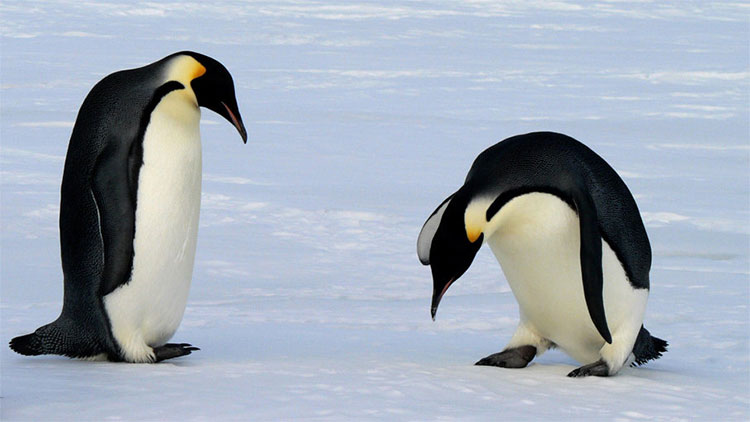Why don't penguin's feet get cold?
How long can you stand on the ice in Antarctica before your feet freeze? Probably from 1 to 2 minutes. However, if you are an emperor penguin, you can stand it for 2 months, with cold winds with temperatures down to -59.4 degrees C.
It seems like the penguin's bare feet will be very cold, but inside they have a special recirculation mechanism , which can act as an antifreeze to ensure sufficient warmth. for the body to keep them from freezing.

Penguins of the penguin act as a heat exchange system.
For hundreds of years, penguin's feet and feet have evolved to ensure they lose as little heat as possible . The penguin's feet retain heat by limiting the circulation of blood in really cold weather to keep the foot's temperature above freezing. Penguins of the penguin act as a heat exchange system. The blood vessels come and go from the very narrow foot and tightly knit together. Blood from the body to the foot will be cooled and will be heated again when returning to the body. When the foot receives cold blood, the amount of heat lost will decrease, while the body will ensure sufficient warmth.
This special ability is part of the way penguins keep warming their eggs until they hatch. Males will incubate an egg at the top of their feet every winter night for 2 months, while females will go out to feed on the sea. They also shield the egg with a rather warm abdominal skin flap, called an incubator, to keep away from external factors.
The nurturing of male birds does not stop there. If the offspring does not bring the food back to the correct time of hatching, the males will feed their children a "milk" made from special cells located in their throat for several days.
We humans also have the ability to limit the circulation of blood to the limbs in cold weather, though not as much as penguins. Our hands will become whiter during the freezing season because there is very little blood inside. This blood is transferred to the "core" of the body to make sure other important organs are kept warm.
- Treat cold hands and feet
- -40 degrees C, Canada is so cold that penguins have to
- Discover interesting things about penguins
- Why do hundreds of Antarctic penguins turn into mummies?
- Happy Feet was liberated to the South Ocean
- The secret of not freezing of Antarctic penguins
- Warning signs of disease from feet
- The pair of gay penguins adopted an egg after a long time to ... boulder incubation
- This is the real reason why girls are cold
- How do penguins differentiate?
- Give the Emperor the penguin back home
- Mother penguins drop eggs, the whole herd rushes to the rescue
 Animal 'suffering' after hibernation
Animal 'suffering' after hibernation Why do goats climb well?
Why do goats climb well? Scientists were surprised to see chimpanzees eating turtles
Scientists were surprised to see chimpanzees eating turtles Giant catfish died deadly due to drought in Thailand
Giant catfish died deadly due to drought in Thailand